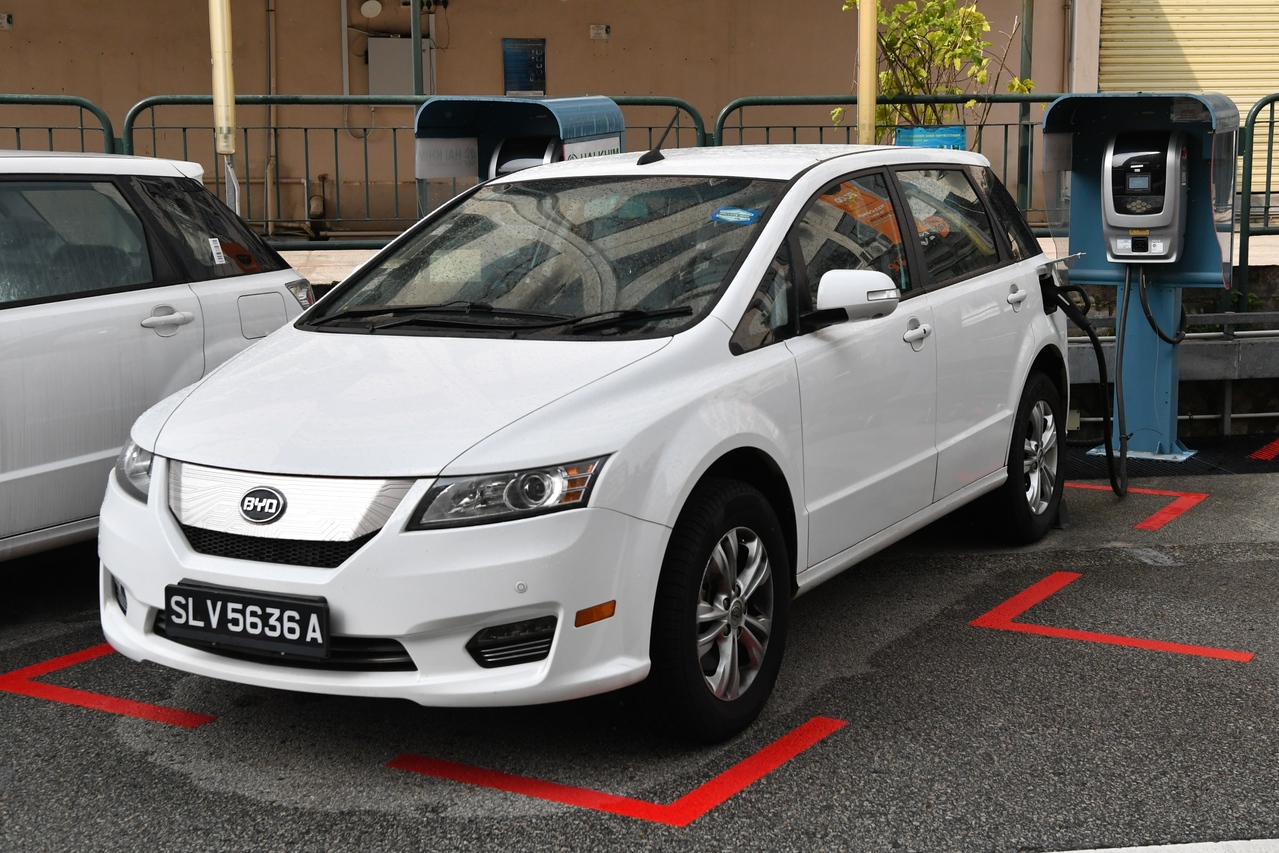8.4% of all new cars from Jan to May were EVs; Grab drivers find making switch difficult
Sign up now: Get ST's newsletters delivered to your inbox

Transport Minister S. Iswaran said EV adoption will gather pace as more electric chargers are deployed around the island.
PHOTO: ST FILE
Follow topic:
SINGAPORE - New electric car registrations formed 8.4 per cent of all new car registrations in the first five months of the year, growing at a rate more than twice that last year and over 20 times that in 2020.
Transport Minister S. Iswaran, giving an update on figures at the Ecosperity conference on Wednesday (June 8), said this was a sign that financial incentives to reduce the cost of electric cars and efforts to increase the network of electric chargers are bearing fruit.
He said electric vehicle (EV) adoption will gather pace as more electric chargers are deployed around the island and more drivers get used to the idea of driving electric vehicles.
There are 822 more electric cars on the road as at end-April than in December last year, according to Land Transport Authority (LTA) statistics. Figures for May will be released later in June.
Singapore has a target to phase out all internal combustion engine cars by 2040, with battery electric vehicles to form the bulk of the vehicle population.
The industry has said that switching from internal combustion engines to electric ones halves the carbon footprint, and this could be even more with the growing proportion of renewable energy sources being used in electricity production.
But panellists at the conference, held at Sands Expo and Convention Centre, said electric cars still remain marginal in Singapore, forming about 1 per cent to 3 per cent of the total private car population.
The lack of charging infrastructure aside, their current price and design still do not fit the needs of a significant proportion of drivers, they added.
During a panel on reducing emissions in cars, Grab's group vice-president of marketing and sustainability Cheryl Goh said most private-hire car drivers now are unable and unwilling to make the switch.
Grab, the largest private-hire car operator in Singapore, has almost five million drivers and delivery riders in South-east Asia.
"Our drivers are generally lower-middle class and for them, a vehicle isn't a luxury item or a status symbol, but a way in which they can earn an income," she said.
"Our drivers are very sensitive to vehicle-related costs because it directly impacts how much money they can bring home to their family."
The total cost of owning an electric vehicle remains 82 per cent higher than owning an equivalent internal combustion engine, four-wheeled vehicle in the region, Ms Goh said.
The length of time needed to charge car batteries is also a key concern, since it eats into the time that drivers can otherwise spend on the roads picking up passengers.
"Our drivers drive a lot longer than an average driver. They drive 230km a day in Singapore alone, and that's seven times more than the average driver," she said. "Since they frequently need to charge and frequently need to think about mileage, range anxiety is real and something that truly makes them think about whether to transition to EVs."
She added that the company is trialling several initiatives to still push on with the shift to cleaner vehicles, including working with banks to finance electric vehicle sales to drivers in Thailand and piloting one-to-one battery swops that minimise charging time for drivers in Indonesia.
In Singapore, it rolled out a JustGrab Green option to let passengers call for hybrid or electric vehicles where they are available, at no extra cost.
"Eventually, if drivers realise that consumers will choose and prioritise electric vehicles or cleaner vehicles, and they get more money out of it, that will definitely drive the transition. Providing priority allocation for eco-friendly cars is definitely a way that this can be possible," she said.
In his speech, Mr Iswaran also emphasised the need to shift more commuters from private cars to public transport, which the Government is doing by expanding the MRT network from 250km to 360km over the next 10 years to increase the proportion of trips on public transport.
The LTA has estimated that the carbon footprint of a single journey can be reduced by 85 per cent if people switch from driving an internal combustion engine car to taking the MRT.
Land transport makes up about 14 per cent of the country's total emissions.

